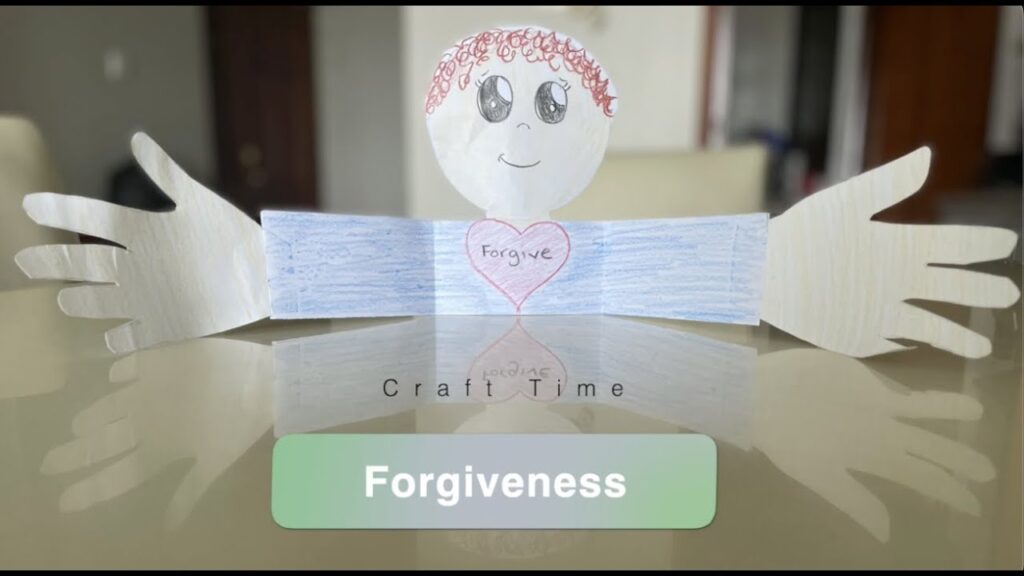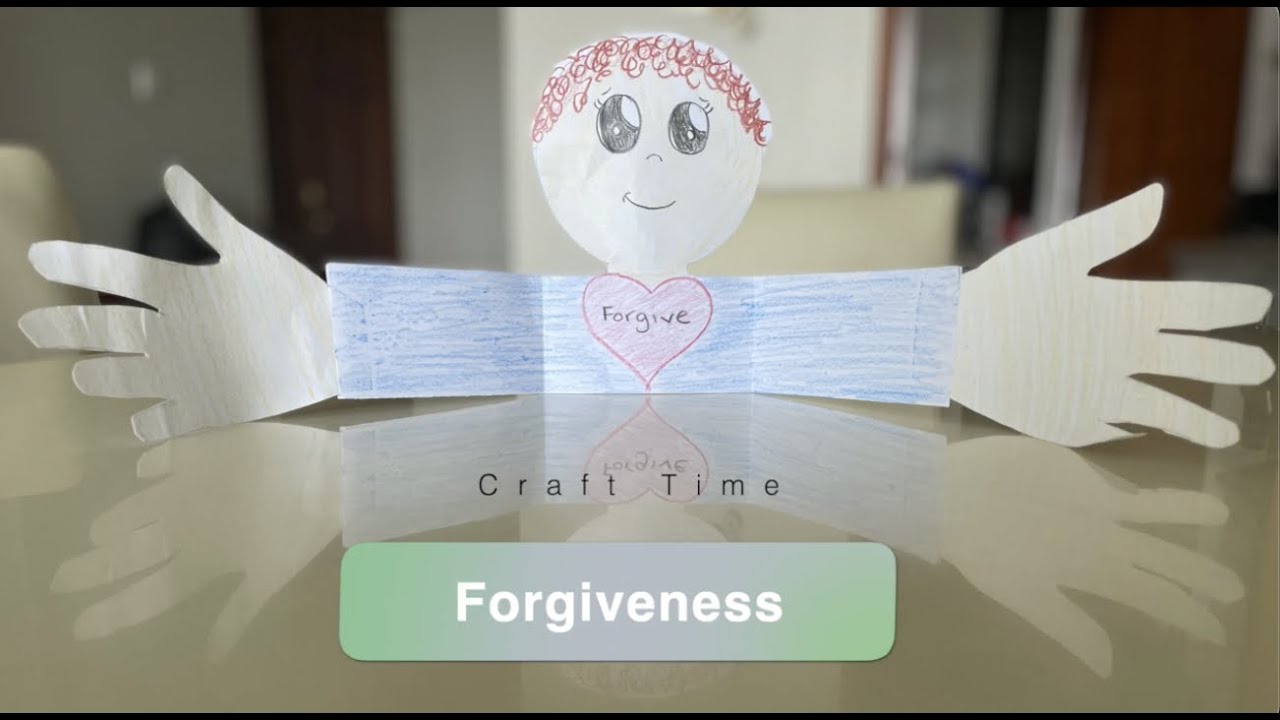
The Profound Story of Forgiveness: Healing Wounds and Building Bridges
Forgiveness, often misunderstood as condoning or forgetting, is a powerful process of releasing resentment and bitterness towards someone who has wronged you. It’s not about excusing the offender’s actions, but rather about freeing yourself from the emotional burden of holding onto anger and pain. The story of forgiveness is a universal human experience, woven into the fabric of our relationships, communities, and even nations. This article delves into the multifaceted nature of forgiveness, exploring its psychological benefits, the challenges it presents, and the inspiring stories of forgiveness that demonstrate its transformative power.
Understanding Forgiveness
At its core, forgiveness is a personal choice. It’s an active decision to let go of negative emotions, such as anger, resentment, and the desire for revenge. This process can be incredibly difficult, especially in cases of severe betrayal or injustice. However, research consistently shows that forgiveness offers significant benefits for both mental and physical health. Holding onto anger and resentment can lead to chronic stress, anxiety, depression, and even physical ailments like heart disease. By choosing to forgive, we can break free from this cycle of negativity and begin to heal.
It is important to distinguish forgiveness from reconciliation. Forgiveness is an internal process, something you do for yourself, regardless of whether the offender acknowledges their wrongdoing or seeks reconciliation. Reconciliation, on the other hand, involves rebuilding a relationship, which requires the participation and willingness of both parties. While forgiveness can be a prerequisite for reconciliation, it is not always possible or advisable to reconcile, especially in situations involving abuse or ongoing harm. The story of forgiveness often includes the nuance of whether reconciliation is possible or even desired.
The Psychological Benefits of Forgiveness
The psychological benefits of forgiveness are well-documented. Studies have shown that individuals who forgive are less likely to experience depression, anxiety, and hostility. They also tend to have higher self-esteem, greater life satisfaction, and stronger social connections. Forgiveness allows us to move on from past hurts and focus on the present and future. It frees up emotional energy that can be used for more productive and fulfilling pursuits. The act of story of forgiveness itself can be therapeutic.
- Reduced stress and anxiety
- Lower risk of depression
- Improved self-esteem
- Stronger relationships
- Greater life satisfaction
The Challenges of Forgiveness
Forgiveness is not always easy. It can be a long and arduous process, especially when dealing with deep-seated wounds. One of the biggest challenges is overcoming the natural human tendency to hold onto anger and resentment. We often feel that forgiving someone is letting them off the hook or minimizing the harm they caused. However, as mentioned earlier, forgiveness is not about condoning the offender’s actions. It’s about releasing yourself from the emotional burden of holding onto negativity. Another challenge is dealing with the pain and grief associated with the offense. It’s important to allow yourself time to grieve and process your emotions before attempting to forgive. [See also: Understanding Grief and Loss]
Sometimes, forgiveness may not be possible or advisable. In situations involving ongoing abuse or harm, it’s crucial to prioritize your safety and well-being. Forgiveness should never be used as a means of excusing or enabling harmful behavior. It’s also important to recognize that forgiveness is a personal choice. No one should be pressured or forced to forgive someone if they are not ready or willing to do so. The story of forgiveness is deeply personal and unique to each individual.
Inspiring Stories of Forgiveness
Throughout history, there have been countless inspiring stories of forgiveness that demonstrate its transformative power. These stories offer hope and inspiration to those who are struggling to forgive. Here are just a few examples:
The Story of Eva Mozes Kor
Eva Mozes Kor was a survivor of the Holocaust who, along with her twin sister Miriam, was subjected to horrific medical experiments at Auschwitz. Despite the unimaginable suffering she endured, Eva chose to forgive the Nazis for their atrocities. She believed that forgiveness was the only way to heal from the trauma and prevent it from consuming her life. Eva’s story of forgiveness is a testament to the resilience of the human spirit and the power of forgiveness to overcome even the most unspeakable horrors. She dedicated her life to sharing her message of forgiveness and promoting peace and understanding.
The Story of Nelson Mandela
Nelson Mandela spent 27 years in prison for his fight against apartheid in South Africa. Upon his release, he could have easily sought revenge against those who had oppressed him. Instead, he chose to forgive his captors and work towards reconciliation and unity. Mandela’s leadership was instrumental in dismantling apartheid and creating a democratic South Africa. His story of forgiveness is a powerful example of how forgiveness can heal a nation and build a more just and equitable society. His ability to forgive helped create a new South Africa.
The Story of Immaculée Ilibagiza
Immaculée Ilibagiza survived the Rwandan genocide by hiding in a bathroom with seven other women for 91 days. During that time, she witnessed the slaughter of her family and countless others. After the genocide, Immaculée chose to forgive the Hutu extremists who had committed these atrocities. She believed that forgiveness was the only way to heal from the trauma and prevent the cycle of violence from continuing. Immaculée’s story of forgiveness is a testament to the power of faith and the ability of forgiveness to transform even the deepest wounds.
How to Begin Your Own Story of Forgiveness
If you are struggling to forgive someone, here are some steps you can take to begin your own story of forgiveness:
- Acknowledge your pain: Allow yourself time to grieve and process your emotions.
- Understand forgiveness: Remember that forgiveness is not about condoning the offender’s actions. It’s about releasing yourself from the emotional burden of holding onto negativity.
- Empathize with the offender: Try to understand the offender’s perspective, even if you don’t agree with their actions. This can help you develop compassion and empathy.
- Make a conscious decision to forgive: This is an active choice to let go of anger and resentment.
- Release your expectations: Don’t expect the offender to apologize or change. Forgiveness is something you do for yourself.
- Seek support: Talk to a trusted friend, family member, therapist, or spiritual advisor.
- Practice self-compassion: Be kind and gentle with yourself throughout the process. Forgiveness takes time and effort.
The Ongoing Journey of Forgiveness
Forgiveness is not a one-time event. It’s an ongoing journey that requires patience, compassion, and self-awareness. There will be times when you struggle with your decision to forgive. That’s okay. Just keep reminding yourself of the benefits of forgiveness and continue to work towards healing. The story of forgiveness is a testament to human resilience and the power of hope. By choosing to forgive, we can break free from the cycle of negativity and create a more peaceful and fulfilling life for ourselves and others. It’s a continuous process of choosing healing over bitterness.
Ultimately, the story of forgiveness is a story of hope, healing, and transformation. It’s a reminder that even in the face of unimaginable pain and suffering, it is possible to find peace and freedom through the power of forgiveness. The act of forgiving empowers the individual and has the potential to transform communities and societies. The key is to remember that forgiveness is a gift you give yourself.
The transformative power embedded within the story of forgiveness extends far beyond individual healing. It fosters stronger relationships, promotes community reconciliation, and contributes to a more peaceful world. By embracing forgiveness, we cultivate empathy, understanding, and compassion, creating a ripple effect of positive change that benefits all.
The story of forgiveness is a powerful reminder that even in the darkest of times, hope and healing are always possible. It’s a testament to the resilience of the human spirit and the transformative power of choosing forgiveness over bitterness. It’s a journey worth embarking on, for the sake of our own well-being and the well-being of the world.

